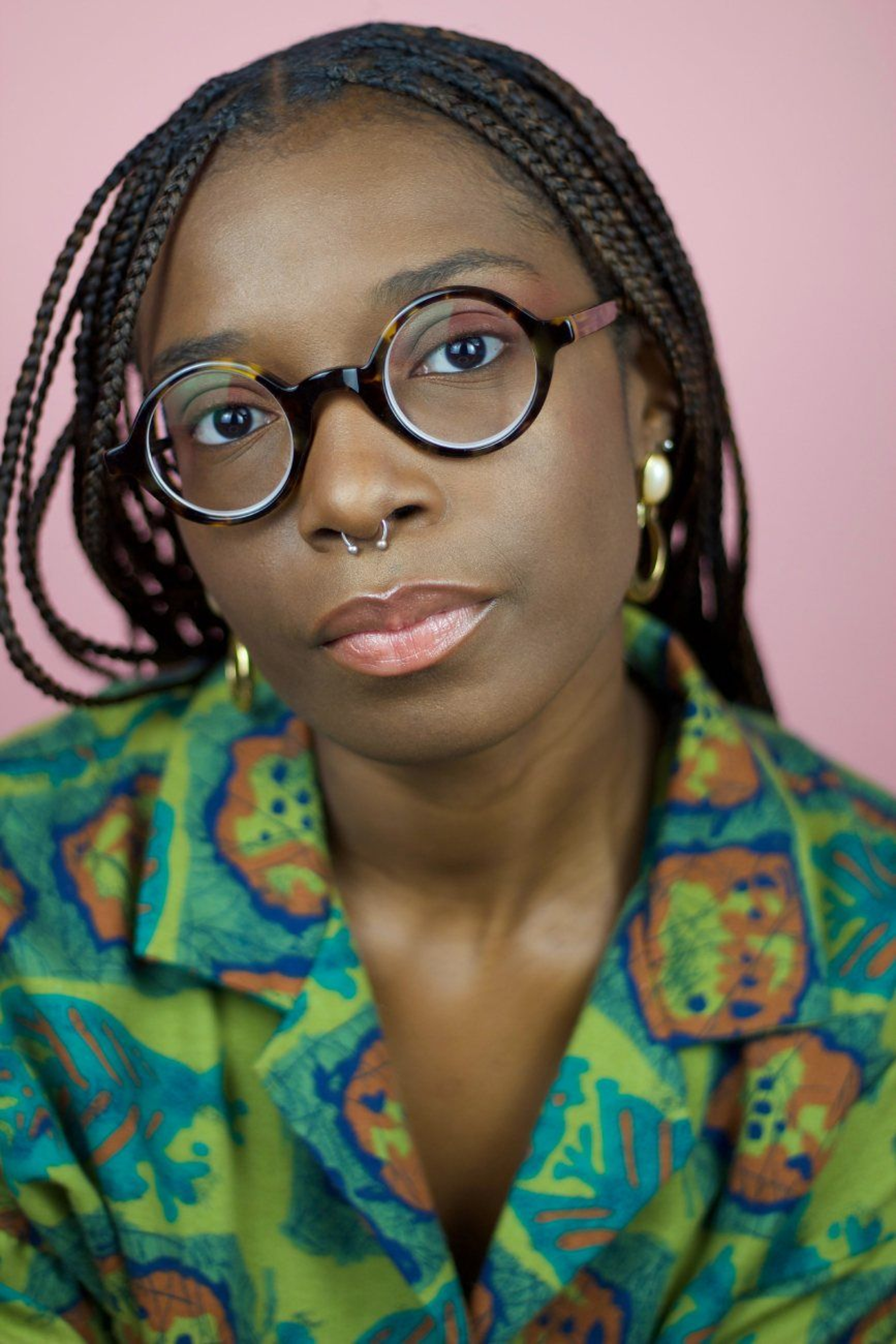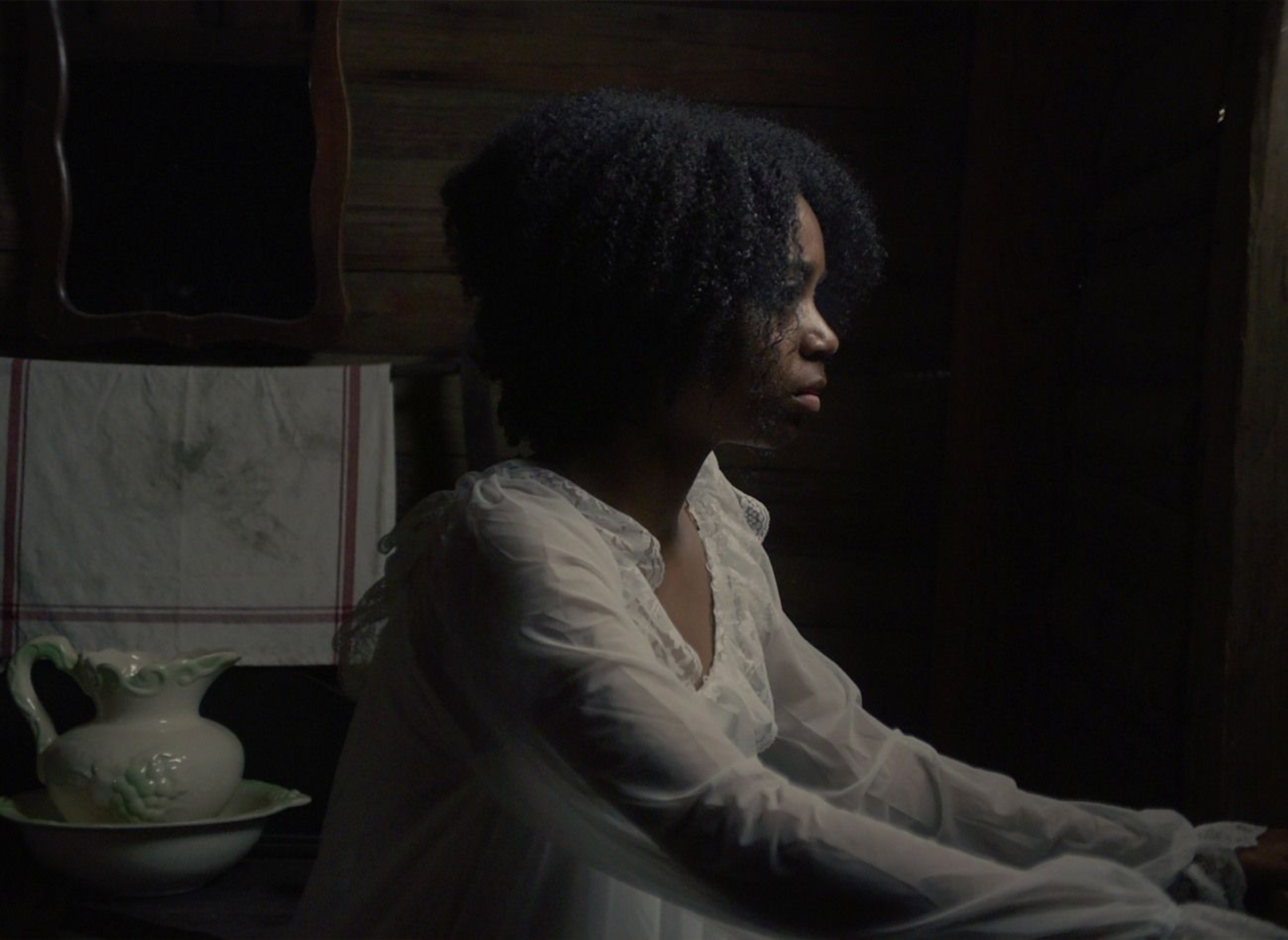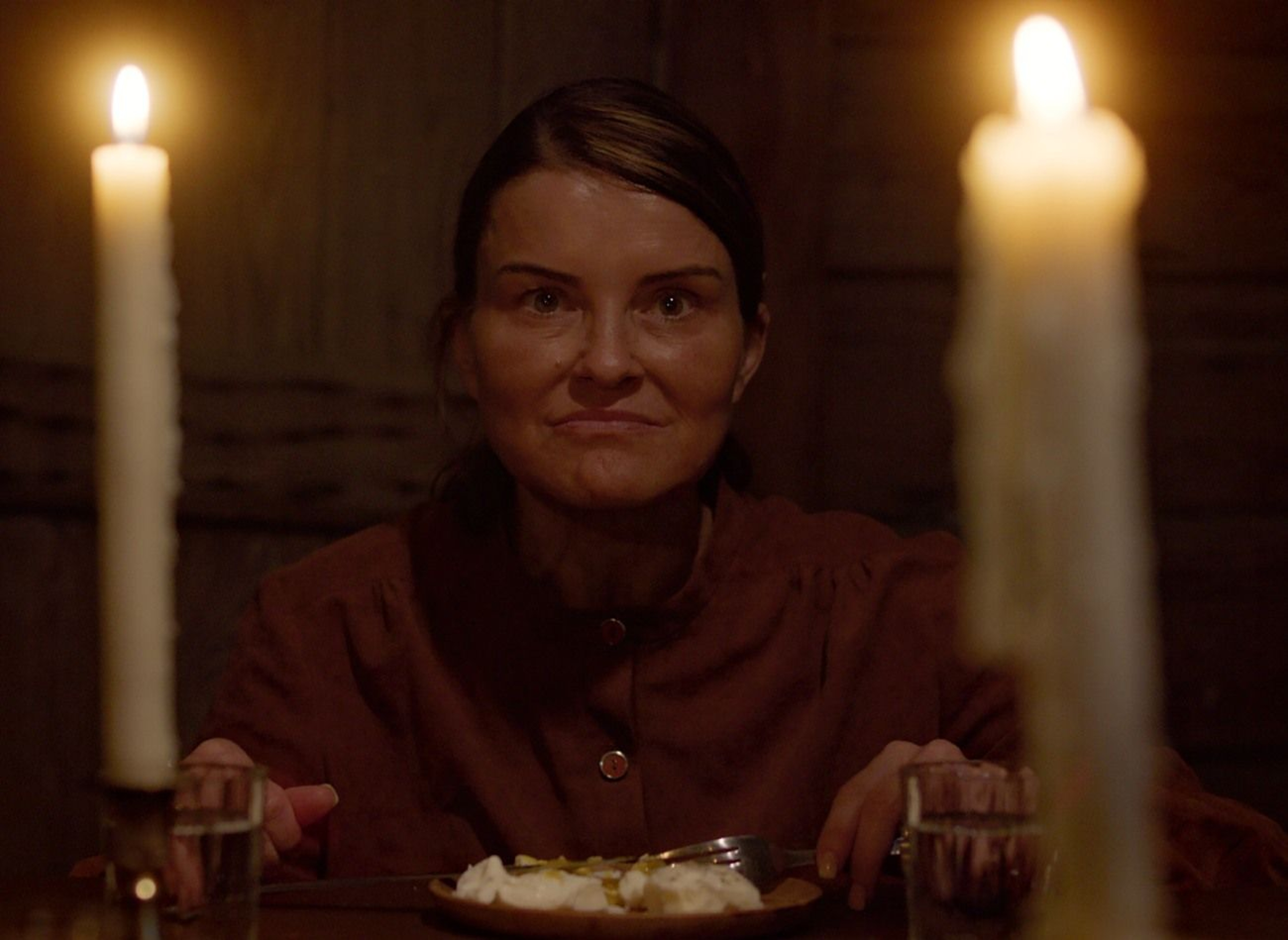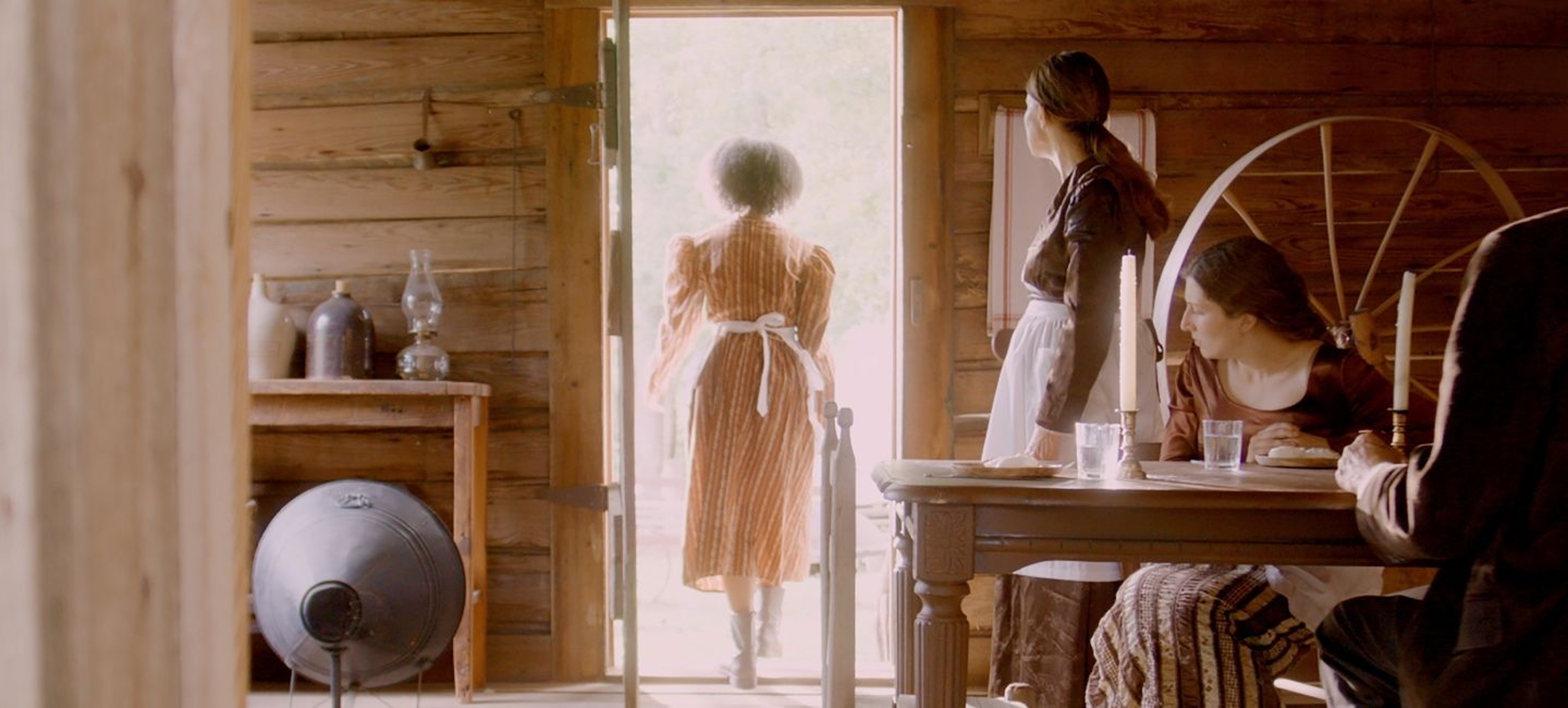Shannon M. Sutherland’s short film They Flew Like Blackbirds is one of five works chosen by a special jury of filmmakers, curators, and critics for the Focus Features & JetBlue Student Short Film Showcase. Created as her thesis film for Florida State University, They Flew Like Blackbirds was selected from projects from 23 different graduate programs.
In the old American South, Belle (Cayla Jackson)—a misplaced Black teen with a white adoptive family—becomes curious about her roots after hearing birds for the first time.
We asked Sutherland to tell us a little about the inspiration for her film, the artists who influenced her, and her plans for the future.
Follow her on Instagram: @shannonm.sutherland
Shannon M. Sutherland’s They Flew Like Blackbirds
Where did the idea for They Flew Like Blackbirds come from?
Growing up in Florida for most of my life, I attended predominantly white schools where I was one of the only students of color in a sea of white faces. Though it was never explicitly pointed out, the inherent tension of being Black in a white space was always palpable. By age 7, I was aware that I was different from the others, and, with the assistance of my white teachers and peers, l convinced myself that this was a bad thing. As I began to mimic “white behavior,” I received positive feedback and garnered the nickname “Oreo.”
Through the years, I continued to conform to my surroundings, suppressing my Blackness and perceiving the world through a fog of whiteness. I did not know it then, but it was a lonely, confusing, and extremely detrimental period in my life, as I was subconsciously being taught that Black skin and Black culture—anything that deviates from whiteness—is bad. In rare moments, I could see through the cloud of whiteness when I occasionally ran into another Black student or one of the few Black instructors. We would keep each other's gaze, and the encounter would conclude with a little nod, which equated to a "I see you" or "we are not alone."
My experience as a Black person suppressing their true self/identity to appease white ideals and searching for a community that accepts them as they are birthed the idea for They Flew Like Blackbirds.
Are there particular myths or legends you drew on for the story?
The act of flight in They Flew Like Blackbirds was inspired by African American folklore. During the era of slavery, African Americans would share stories amongst each other and pass these tales from generation to generation. One of these stories told of Africans who had the ability to fly before they were enslaved. For me, this particular tale is intriguing because it provides some insight into how African Americans imagined or perceived themselves outside of the context of slavery. It and other tales were testaments to the belief that they had power, freedom, and identity.
Unfortunately, when it comes to the Black body in America, our history always begins with the Atlantic slave trade, and everything before is often ignored. The stripping of African American culture and history during slavery is something that we do not address enough, and people who are not descendants of enslaved people can never fully understand the long-term scars left on future generations. It is very difficult to have a complete sense of self when your family’s history begins with enslavement, and when you look up your last name, your enslaver’s history comes up. For me, it is important to look to these tales for clues about Black identity before the attempt to eradicate it through enslavement.

Filmmaker Shannon M. Sutherland
How did you find your principal cast?
It was a combination of instinct, casting calls, and recommendations. When writing the script, I already had Cayla Jackson in mind to play the lead role of Belle. Her and I have worked together in the past, and she is easily my favorite person to collaborate with. The story is presented through metaphor and has satirical beats, yet at its core, there is a yearning to be accepted and loved. I had full confidence that Cayla would understand the breadth of all this, as well as add more nuance and layers to Belle than I could ever imagine.
I was a bit nervous about casting Anne and Man, as they are pivotal characters in progressing Belle’s awakening. When I came across Rachel Brownhill (Anne) and Derek Reginald’s (Man) casting tapes, I knew right away that I had found my dream cast. I am very open with actors and love to see how they interpret the characters without my input. I probably auditioned around 30 people in total for both roles, but Rachel and Derek approached the characters in ways that I did not originally imagine. I am very grateful to have worked with them on this project.
What in the final product most captures what you saw in your mind when you first imagined the film?
It would have to be Belle’s breakdown scene. It is the moment where she has decided enough is enough and refuses to participate in her white adoptive families’ harmful customs any longer. When Belle realizes how much she has suppressed of herself to fit in, Cayla really brought the reaction that I imagined Belle would have. Watching her perform the scene on the set, I remember a hush coming over the crew and I knew that we were making something special.

They Flew Like Blackbirds
What was the biggest lesson learned working on They Flew Like Blackbirds?
My biggest takeaway working on this project was to be genuine and fearless in storytelling. During the writing stage, I was being advised to approach the story in a traditional, structured way; but I felt the need to portray Belle’s journey in a more metaphorical light. Although it is important to take feedback and apply it to your work, the suggestions given should never infringe upon the story that you intend to tell. I personally prefer stories that merge genres and are on the weirder side. Working on this project, I pushed myself to make room for weirdness despite an adherence to structure. It is the most confident I have felt directing, and I look forward to creating even weirder work in the future.
As an emerging filmmaker, who are your influences (filmmakers, artists, writers, or friends)?
I love films that blend genres, have psychological-horror elements, and are heavily subjective; so, most of my favorite directors' works fall into this category. I am most inspired by the works of Darren Aronofsky, Lars von Trier, Julia Ducournau, Lynne Ramsay, and Krzysztof Kieślowski. Films like Don’t Look Now (1973), Carrie (1976), Come and See (1985), Eve's Bayou (1997), Eraserhead (1977), Candyman (1992), and The VVitch (2015) have also tremendously impacted me.

They Flew Like Blackbirds
What was the first film you saw that made you want to be a filmmaker and why?
Hands down, I would have to say Dogville (2003). I have always been a writer, but the jump to becoming a filmmaker was a difficult one. For me, filmmaking seemed like something that was not easily accessible and a privileged pursuit. When I watched Dogville, I remember thinking that I had never seen anything like it before and being really inspired by how simple, yet effective the production was. It did not rely on a big fancy Hollywood production with a bunch of visual effects. It was solely about the story/the character’s emotional journey, and it encouraged me to not only dream of becoming a filmmaker but to pursue it. Shortly after, I made my first short film.
Are you working on a feature film?
Kind of. I still feel like a baby filmmaker, and I would like to experiment a bit more before making a feature. Right now, I am working on a trilogy of psychological-horror shorts centered around Black female rage during different American eras. After this, I would like to work on a feature.
This interview has been edited and condensed for clarity.
